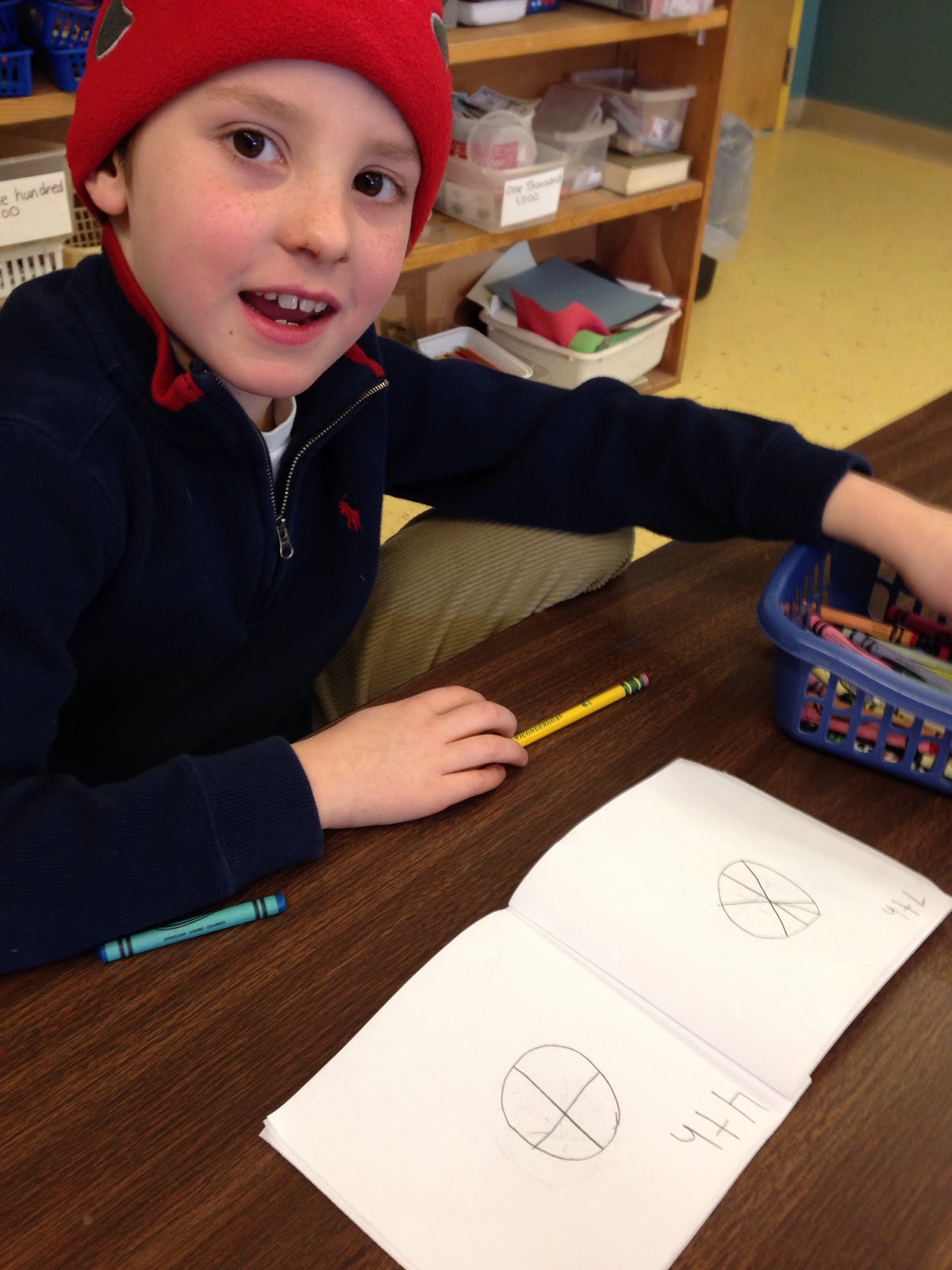The second graders approached our recent unit on fractions with their usual enthusiasm and curiosity. We explored the concepts of one whole, one half, one fourth, one third, as well as more complex fractions such as one eighth, two thirds, and three fourths. This was a unit where real life examples were useful and provided context for the students to think about these ideas. Half of a cookie, one quarter of a pizza, one third of an apple - these were all opportunities for the students to visualize what these fractions would look like in real life.
After much exploration, the students made their own fraction books, an activity that provided additional practice and an opportunity to further display their understanding of the concepts. Each book was unique and detailed - some students wrote and illustrated stories exploring the concepts, others drew complex pictures of various fractions, and some even posed questions and answers to their readers. Creating these books allowed students to move beyond simply accessing this new information. Possession of facts cannot be the bulk of learning. What
is an important skill is the ability to sift through abundant information, identify what is valid and meaningful, then use it to create meaning and express it. Writing and illustrating a book related to our topic, and presenting it to their peers, illustrated that deeper learning had occurred. This was another example of the importance of student creation.
 |
| A student's book |
 |
| Hard at work! |
 |
| Making books |
The second graders have also been extremely interested and motivated to create their own math games to play with friends. Guidelines have been established to allow for personal creativity, yet still extend and broaden students' knowledge of the particular unit we may be studying (first fractions, now more complicated addition). Far beyond filling out answers on a worksheet, these assignments allow for individual talents and personality to shine through and provide students an additional way to illustrate their understanding of mathematical ideas.
Math draws much of its meaning by relating to life in the world outside the classroom. Children seek to understand the world by inquiry and investigation. Giving students ample opportunities to develop sound investigative skills at an early age is essential to nurturing their ability to think critically and mathematically as they get older. Activities such as creating books, playing and developing math games, and other hands-on activities provides a wonderful and critical opportunity for learning.
 |
| More books! |

 |
| Math can even provide inspiration for creating new words! |
 |
| Students create their own math game |

 |
| More addition games |
 |
| Quizzing one another on math facts |

 |
| Practice makes perfect! |

















